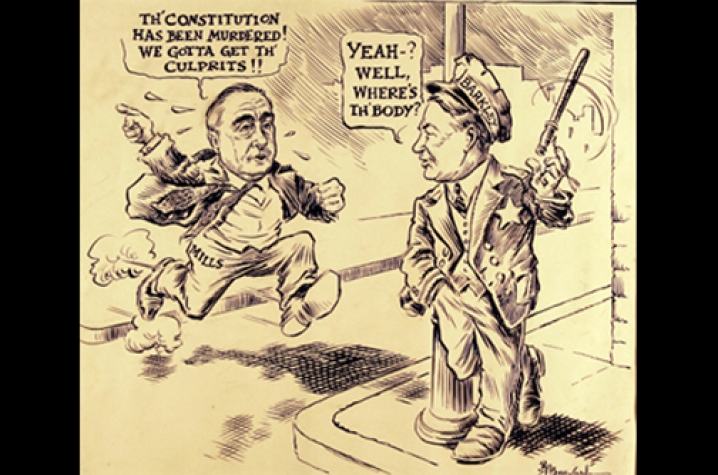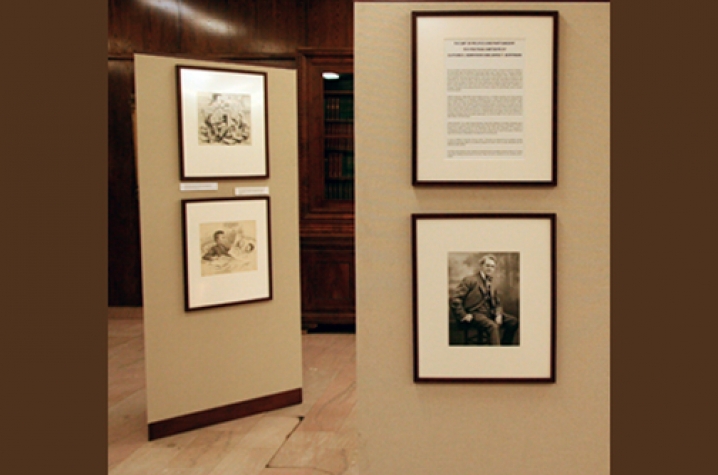Political Cartoon Exhibit Explores History via Satire
LEXINGTON, Ky. (Feb. 4, 2011) − Since the mid-19th century, political cartoonists have strived to inform, ridicule and, most importantly, induce a public reaction by shedding light on major social or political issues through cartoons. The Public Policy Archives at University of Kentucky Libraries houses the political artwork of many 20th century cartoonists, and they are sharing pieces of the collection as part of an exhibition of political cartoons at UK's Margaret I. King Building. The free public exhibit, which includes the work of the late political cartoonist and Kentuckian, Clifford Berryman, and his late son James Berryman, is on display in the facility's foyer through March 31.
Although the art of political cartooning began during the mid-19th century, it became increasingly popular in the 1870s when political cartoonist Thomas Nast criticized William "Boss" Tweed and his Tammany Hall "Tweed Ring" over the disappearance of about $200 million of taxpayers' money. This caused quite a public stir, especially from Tweed, who did not appreciate being publicly humiliated. Since then political cartooning has become a common journalistic art.
Political cartoonist Clifford Berryman was respected by the public and even by the subjects of his cartoons. He did not use caricatures to illustrate his subjects, but sought to draw their likenesses as accurately as possible, which his subjects appreciated. Clifford Berryman, a native of Versailles, moved to Washington, D.C., at the age of 17 to pursue becoming a draftsman in the U.S. Patent Office where he worked for five years. In 1891, he became the understudy to the Washington Post’s political cartoonist George Y. Coffin. After Coffin's death in 1896, Clifford Berryman became the full-time political cartoonist for the paper until 1907 when he was hired by the Washington Post’s competitor, the Washington Star. He won the Pulitzer Prize in 1944 for his cartoon titled “Where is the Boat Going.” Clifford Berryman drew political cartoons for the Washington Star until his death in 1949.
James Berryman followed in his father's footsteps. He worked first as a reporter for the New Mexico State Tribune before returning to Washington to become the full-time cartoonist at the Washington Star. In 1933, he left the Washington Star and continued to draw political cartoons. Like his father, James Berryman won a Pulitzer Prize in 1950 for his cartoon "All Set for a Super-Secret Session in Washington."
In honor of Clifford and James Berryman, the National Press Foundation annually presents the Berryman Award to an editorial cartoonist for work it feels has been well drawn and has influenced public opinion.
The Public Policy Archives, part of the Special Collections Division at UK, houses the political artwork of many 20th century cartoonists including the Berrymans and Grover Page, the former cartoonist for the Louisville Courier-Journal.
The political cartoon exhibit featuring the work of Clifford and James Berryman can be viewed 8:30 a.m. to 5 p.m. Monday through Friday. For more information on the political cartoon exhibit, contact Special Collections at (859) 257-8611.






